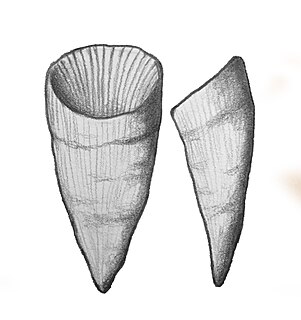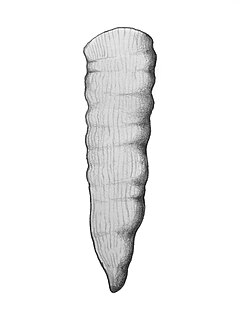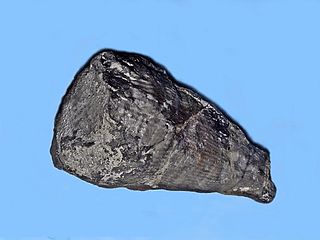 W
WCatenipora is an extinct genus of tabulate corals in the family Halysitidae, known from the Ordovician to the Silurian.
 W
WCladochonus is an extinct genus of tabulate coral.
 W
WFavosites is an extinct genus of tabulate coral characterized by polygonal closely packed corallites. The walls between corallites are pierced by pores known as mural pores which allowed transfer of nutrients between polyps. Favosites, like many corals, thrived in warm sunlit seas, feeding by filtering microscopic plankton with their stinging tentacles and often forming part of reef complexes. The genus had a worldwide distribution from the Late Ordovician to Late Permian.
 W
WGoniophyllum is an Silurian genus of rugose coral known from Sweden, Norway, Canada, the United Kingdom and the United States. It is easily identified by its "lids" and distinct square shape. The genus was described by Milne-Edwards et Haime in 1851.
 W
WHolophragma is an extinct genus of rugose coral known from Ordovician and Silurian rocks in Scandinavia, Russia, Australia and the United States. Two of its species can be found on the northwestern coast of Gotland, where it is one of the most common fossil genera. It was described by Gustaf Lindström in the year 1896. The genus contains two species.
 W
W†Holophragma calceoloides is an extinct species of rugose coral known from Silurian layers mainly on, but not limited to, the northwestern coast of Gotland, where it is very common. The species was recognised in 1866 by Gustaf Lindström. It was small and benthic, and always solitary.
 W
WHolophragma mitrata is an extinct species of Rugose coral mainly known from the island of Gotland. It is horn shaped and can grow to about 40mm in length. The calyx is relatively deep and the septa runs from its ridge to the floor. The cardinal septa is not very dominant. It was described by Schlotheim in the year 1820 under the name Hippurites mitratus.
 W
WIsastrea is an extinct genus of corals that lived during the Jurassic and Cretaceous periods. Its fossils have been found in Europe, Africa, North America, Asia and South America.
 W
WPhaulactis is an extinct genus of rugose coral that existed during the Ordovician, Silurian and Devonian periods. It can be found in Europe, North America, Asia and Australia. Phaulactis was described by Ryder in 1926.
 W
WPhaulactis cyathophylloides is an extinct species of rugose coral known from the silurian layers of Gotland, and Estonia. It is the type species of the genus Phaulactis and was described by Ryder in 1926. It can grow to relatively large sizes.
 W
WPseudoamplexus is an extinct genus of horn corals belonging to the order Rugosa.
 W
WStylina is a genus of extinct stony corals.